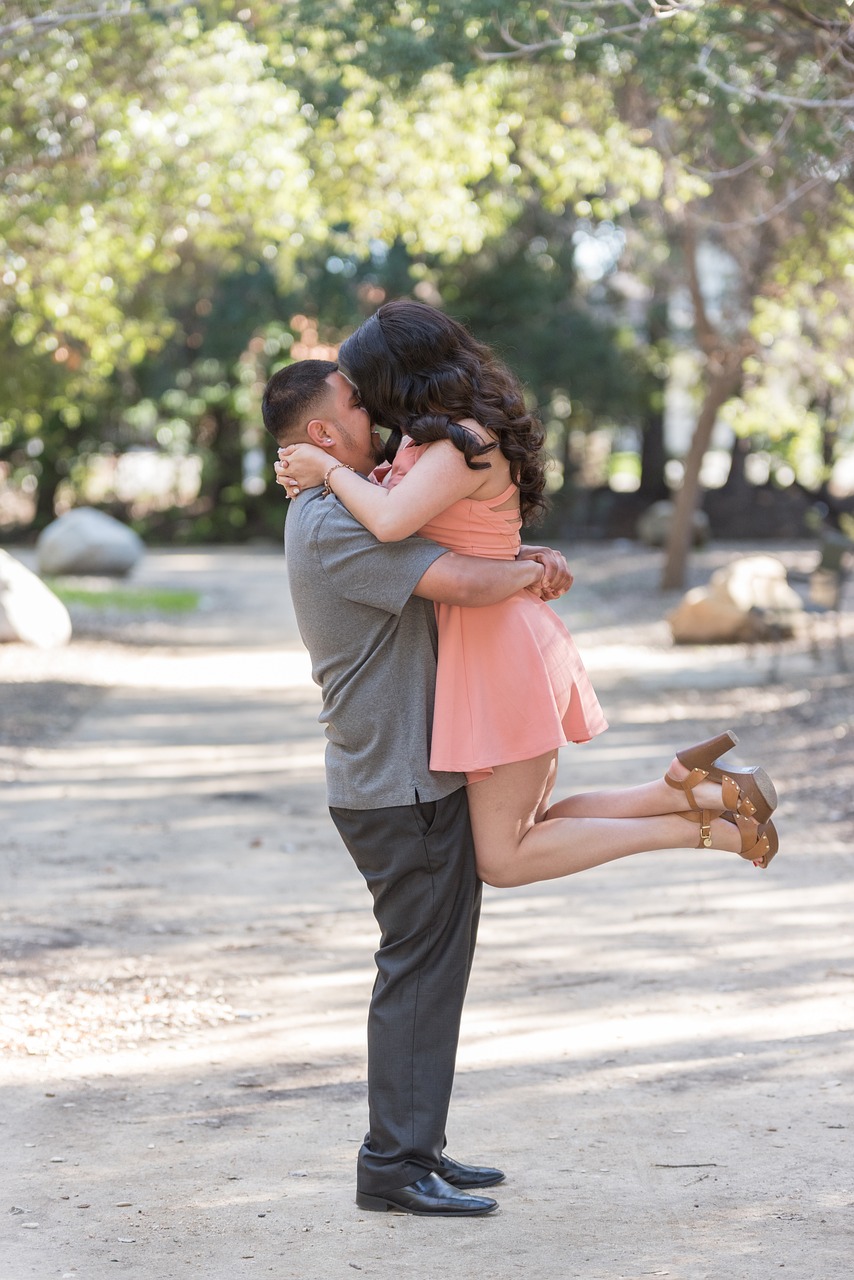UPDATE: my mom ended our relationship and changed her mind a few hours later
 Image credit: Pixabay (This is example image – Not the actual photo)
Image credit: Pixabay (This is example image – Not the actual photo)
When Family Ties Become Toxic
In a heart-wrenching struggle for autonomy and respect, a person grapples with their mother’s refusal to acknowledge boundaries after a tumultuous relationship. As the holidays approach, the tension escalates, leading to a pivotal decision about the future of their connection. This story resonates with anyone who has faced the challenge of setting boundaries with loved ones, especially when those boundaries are met with resistance and misunderstanding.
- Relatable Conflict: Many can empathize with the difficulty of navigating family dynamics, particularly when past traumas complicate relationships.
- Thought-Provoking Themes: The narrative raises questions about the nature of love, respect, and the importance of self-preservation in familial bonds.
Family Drama and Conflict Resolution: A Difficult Decision
In a recent family conflict, a person faced significant tension with their mother regarding past trauma and boundaries. The situation escalated over several weeks, leading to a critical decision point. Here’s a summary of the events:
- Initial Conflict: The individual had been firm in their decision not to accept their mother’s attempts to reconcile after a previous fallout.
- Mother’s Actions: The mother reached out multiple times, discussing legal actions against the individual’s childhood abuser without their consent. This raised concerns about trust and communication.
- Boundary Issues: The mother expressed that the individual’s personal boundaries were unacceptable, claiming they made her feel unsafe in their relationship.
Feeling overwhelmed, the individual decided to respond to their mother’s messages:
- Response Strategy: They communicated that the mother’s previous decision to end their relationship had damaged trust. They proposed two potential paths forward:
- Family therapy to address their issues together.
- Minimum contact, limiting interactions to one brunch a year.
However, the mother’s subsequent response was extensive and chaotic:
- Lengthy Reply: She sent a detailed message addressing each point made by the individual, often expressing confusion about how she had hurt them.
- Frustration: The individual felt that many of their concerns had already been addressed, leading to further frustration and a sense of hopelessness regarding the relationship.
After taking time to reflect, the individual made a decisive choice:
- Final Decision: They informed their mother that they were giving up on the relationship, stating that she did not understand the concept of healthy boundaries.
- Emotional Impact: The individual expressed feelings of loss, stating that they felt a void where a caring mother should be, and emphasized that they would no longer reserve that space for someone who had not earned it.
This situation highlights the complexities of family drama and the challenges of conflict resolution, particularly when past trauma and boundary violations are involved. The individual’s journey reflects a critical turning point in their relationship with their mother, emphasizing the importance of mutual respect and understanding in familial connections.
This is Original story from Reddit
 Image credit: Pixabay (This is example image – Not the actual photo)
Image credit: Pixabay (This is example image – Not the actual photo)
Story
Over the last few weeks, I was holding strong in my decision not to accept her takesies-backsies. She messaged me several more times since then, each time with some unhinged prospect that made it harder to not respond. She had decided to speak to her lawyer and strategize without me at length about whether or not they could get me a restraining order against my childhood abuser.
She said she wouldn’t move forward until I okayed it and followed up a week later. She added a big ol’ spiel about how, if we were to keep trying to work things out, she thought I needed to consider that every event has three points of view: mine, hers, and what really happened. She also mentioned that I needed to consider her point of view about the times she has hurt me.
She went on a bit of a rant about boundaries, saying that I can have personal boundaries that affect only me, but that it’s not okay for me to have boundaries that she has to abide by in order to have a relationship with me. She seems to think that we need to mutually agree to my boundaries, and that if she doesn’t agree, she doesn’t have to respect them because it would make her feel unsafe in the relationship.
I broke down and responded. Nothing too long. I said, “Hey, don’t go talking to a lawyer about my situation without me there.”
I told her that her earlier decision to end the relationship and then do takesies-backsies resulted in a loss of trust in her. I told her I was not willing to continue the back-and-forth messages because it wasn’t working and suggested two ways forward: 1. family therapy, 2. give up on resolution and go to minimum contact—one brunch a year for a catch-up, no family dinners or holiday invites.
I said she could pick either or none, but I wasn’t willing to keep doing what we’ve been doing. I also responded to her rant about boundaries. I have boundaries regardless of whether or not she likes them, and she can ask questions about them to understand if she doesn’t agree, but pushing them results in me reducing or taking away her access to me.
She responded on the 23rd, with perfect timing to blow up the family right before Christmas. She wrote a freakin’ novel, responding to a dozen of my earlier messages plus my most recent one, sentence by sentence. She would copy and paste a sentence of one of my messages, then respond to it over and over.
I haven’t seen anything like it before, and I don’t know what she hoped to actually accomplish. Most of her responses were, “I don’t know how I have hurt you,” “I don’t know what you’re talking about,” or “I don’t understand.” But a lot of these things were explained at other points in the same message, or we had talked about them earlier, so what the hell?
Receiving that message was a firm turning point for me. I’ve had several points in the last year when I’ve thought this would be the end and had started to accept that there was no real relationship for us. A key one was the unanimous response to my previous post, so THANK YOU Reddit for affirming my experience and supporting me.
I took a couple of days and responded yesterday so that she wouldn’t be able to blow up Christmas Day when the rest of my family would be with her. I was, of course, not at her Christmas. I told her I’m giving up.
That she doesn’t understand what boundaries are or how they function in healthy, respectful relationships. I told her that it’s not worth it for me to keep explaining my pain just for her to act like I’m keeping her in the dark. I wrote a paragraph about the types of ways she has hurt me.
I thought y’all might like the final paragraph, in which I am absolutely being unkind, but I don’t regret this one:
It feels like I have a gaping hole in my life where a caring mother is supposed to be, and instead, it’s just you. There are people in my life who are far more deserving of that space, and I’m no longer willing to reserve it for someone who hasn’t earned it and isn’t willing to set aside their ego for the sake of their relationship with their child.
View the Original Reddit Post Here
Summary of Reddit Comments
The top Reddit comments emphasize the importance of setting boundaries and prioritizing personal well-being over toxic relationships. Users strongly advocate for the original poster (OP) to block their mother and focus on nurturing healthier connections, as the mother’s mental health issues are deemed too complex for OP to manage. Overall, the consensus is that OP deserves to cultivate loving relationships without the burden of their mother’s emotional turmoil.
Verdict: NTA
Expert Advice for Resolving Family Conflict
Family conflicts, especially those rooted in past trauma and boundary violations, can be incredibly challenging to navigate. Here are some practical steps for both the individual and the mother to consider in resolving their conflict, fostering understanding, and promoting healing.
For the Individual
- Reaffirm Boundaries: Continue to communicate your boundaries clearly and consistently. It’s essential to stand firm in what you need for your emotional well-being.
- Seek Support: Engage with a therapist or support group to process your feelings and gain perspective. This can help you navigate the emotional complexities of the situation.
- Consider a Letter: If direct communication feels overwhelming, consider writing a letter to your mother. This allows you to express your feelings without the immediate pressure of a conversation.
- Evaluate Contact: If you choose to maintain minimal contact, set specific guidelines for interactions. This could include topics that are off-limits or time limits for visits.
- Focus on Self-Care: Prioritize activities that nurture your mental and emotional health. Surround yourself with supportive friends and engage in hobbies that bring you joy.
For the Mother
- Reflect on Actions: Take time to consider the impact of your actions on your child. Acknowledge the boundaries set by your child and the reasons behind them.
- Seek Professional Help: Consider engaging in therapy to address your own emotional challenges and to learn healthier communication strategies.
- Practice Active Listening: When communicating with your child, focus on listening without interrupting. Validate their feelings and express a genuine desire to understand their perspective.
- Respect Boundaries: Understand that your child’s boundaries are not a rejection of you but a necessary step for their well-being. Work on respecting these boundaries, even if it’s difficult.
- Apologize Sincerely: If you recognize past mistakes, offer a heartfelt apology. Acknowledge the hurt caused and express a willingness to change.
Moving Forward
Conflict resolution in family dynamics requires patience, empathy, and a willingness to change. Both parties must be open to understanding each other’s perspectives and working towards a healthier relationship. Remember, it’s okay to prioritize your well-being and seek the support you need during this challenging time.
Join the Discussion
 Image credit: Pixabay (This is example image – Not the actual photo)
Image credit: Pixabay (This is example image – Not the actual photo)
What do you think? Would you have handled this differently?
Share your thoughts below! Vote: Do you agree with Reddit’s verdict?












